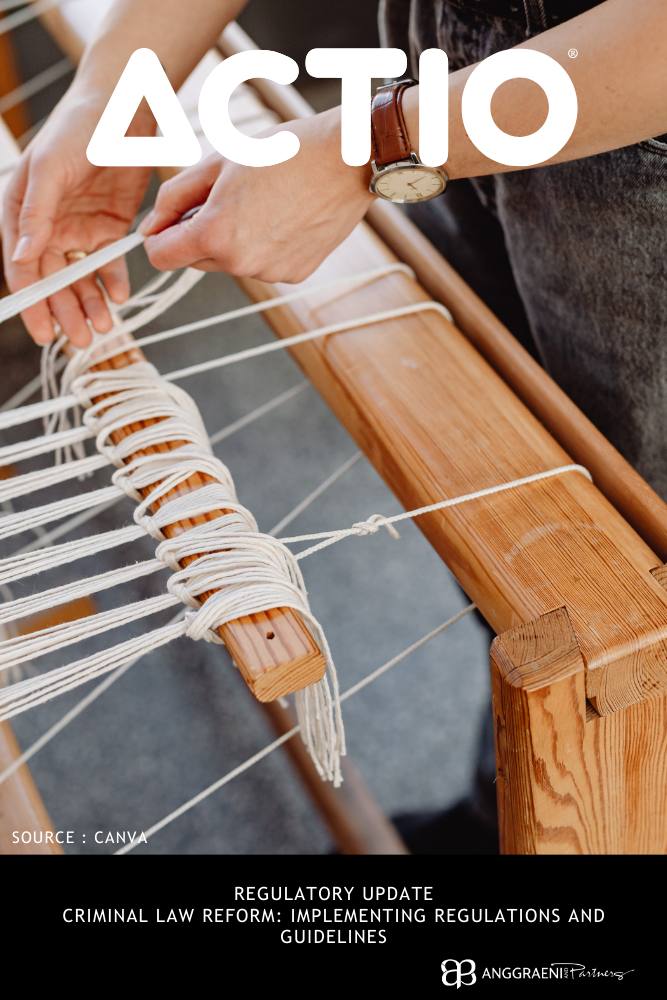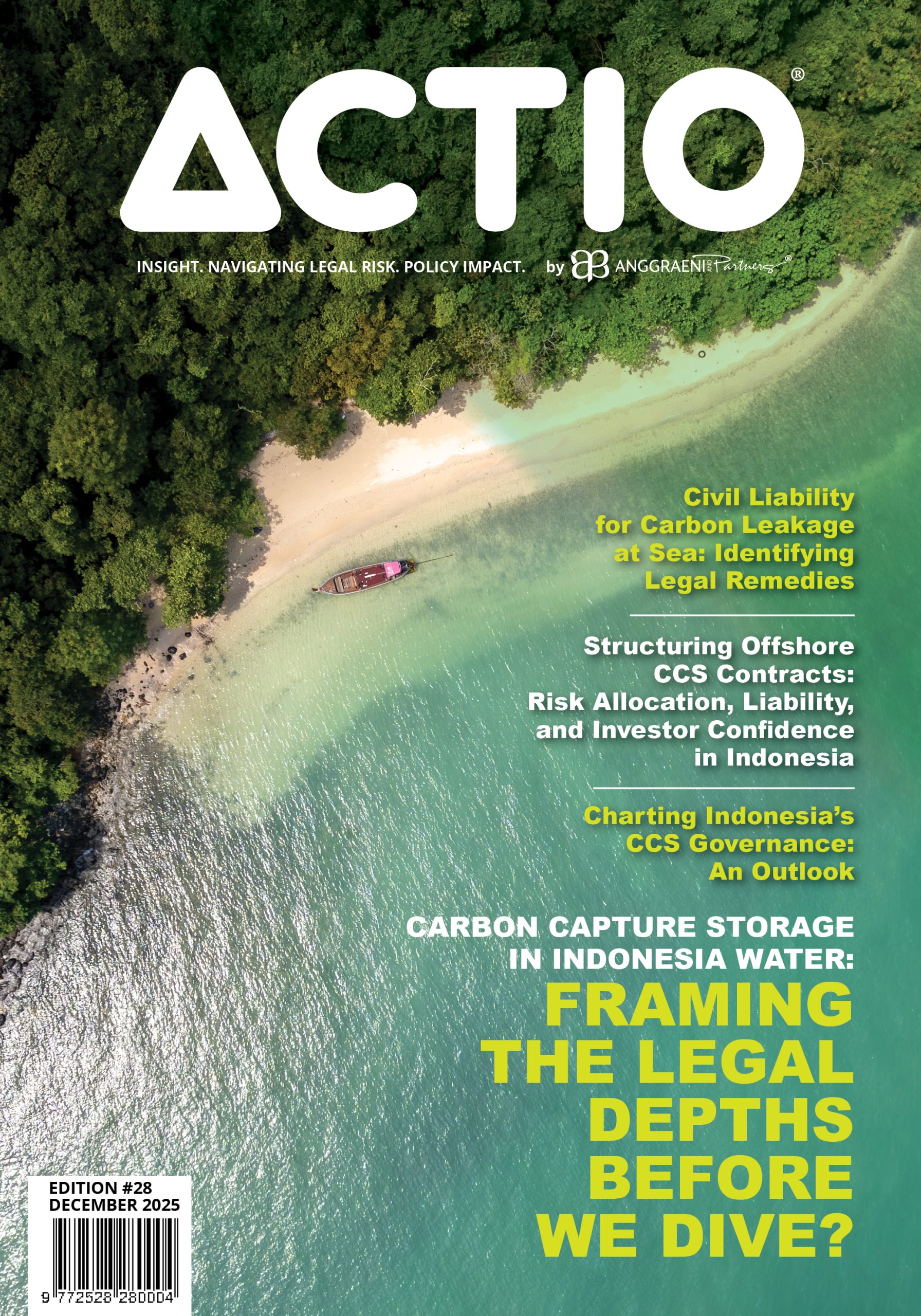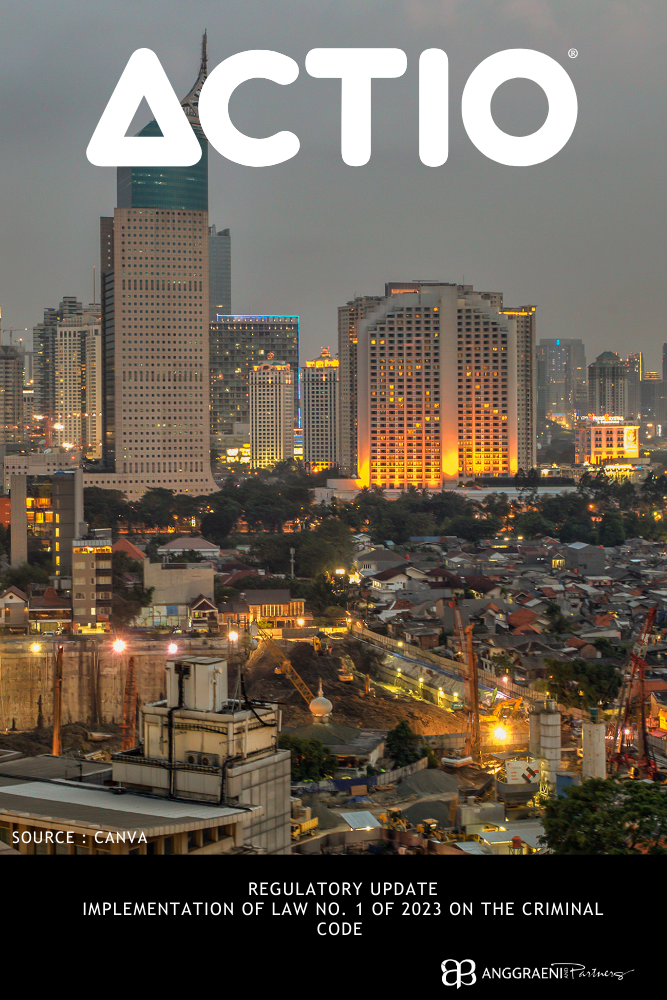- Home
- Capabilities
- ACTIO® Hub
- About Us
- Connect with Us
- AP Library
The existing arbitration law in Indonesia covers both domestic and international arbitration. Law Number 30 of 1999 on Arbitration and Alternative Dispute Resolutions (AADR Law) has been the cornerstone of arbitration law in Indonesia. It sets out the basic framework for conducting arbitration proceedings in Indonesia, including the requirements for an enforceable arbitration agreement, the rules governing the conduct of arbitration and the process for enforcing arbitral awards.
After more than two decades since the enactment of the AADR Law, the Supreme Court introduced a regulation to fill in the gap of the AADR Law. The Supreme Court issued Supreme Court Regulation Number 3 of 2023 on Procedures for the Appointment of Arbitrators by the Court, the Rights of Recusal, Examinations of Request for Enforcement, and the Annulment of Arbitral Awards (SCR 3/2023). SCR 3/2023 outlines procedures for court-appointed arbitrators, addressing parties’ disagreement on the appointment of an arbitrator. It also details the grounds and process for rights of recusal in arbitration proceedings, stipulates the examination of requests for the enforcement of arbitral awards, and sets forth guidelines for annulment of arbitral awards.
At the international level, Indonesia is a signatory to the 1958 New York Convention on the Recognition and Enforcement of Foreign Arbitral Awards.[1] This means that foreign arbitral awards rendered in other countries that are parties to the Convention can be enforced in Indonesia in accordance with the Convention’s provisions. In fact, the AADR law exists as an implication of the ratification of this Convention. To conclude, the structure of arbitration law in Indonesia is built on a combination of domestic and international legal instruments, which provide a clear and well-established framework for conducting arbitration proceedings in the country.
Arbitration is regulated in the AADR Law. It includes general arbitration procedures, limited court assistance, and domestic and international arbitral award enforcement. There is no specific law on international arbitration.
In determining whether an arbitration is domestic or international, Indonesia generally takes a territorial approach. An award rendered by an arbitration institution or an individual arbitrator outside the jurisdiction of the Republic of Indonesia or an award by an arbitration institution or individual arbitrator, that, according to the laws of the Republic of Indonesia, is considered as an ‘international arbitral award’.[2] Further, the AADR Law encompasses both domestic arbitration proceedings and the enforcement of domestic and international awards without segregating the two into separate legislative instruments.
Existing arbitration institutions in the region
The National Arbitration Body of Indonesia (Badan Arbitrase Nasional Indonesia or BANI) is one of the leading arbitration institutions in the region. There are also several other arbitral bodies that have a more narrow scope with more focused expertise in a particular field, such as the National Sharia Arbitration Body (Badan Arbitrase Syariah Nasional or Basyarnas), the Commodity Futures Trading Arbitration Board (Badan Arbitrase Perdagangan Berjangka Komoditi or BAKTI), the Indonesian Sports Arbitration Board (Badan Arbitrase Keolahragaan Indonesia or BAKI), the Indonesian Sports Arbitration Board (Badan Arbitrase Olahraga Indonesia or BAORI), and Alternative Dispute Resolution Institution in the Financial Services Sector (Lembaga Alternatif Penyelesaian Sengketa Sektor Jasa Keuangan or LAPS SJK).[3]
In addition to local arbitration institutions, a number of arbitrations are seated in Indonesia but administered by internationally known arbitration institutions as well, including the Singapore International Arbitration Centre (SIAC) and International Chamber of Commerce International Court of Arbitration.
To know more about this topic, stay tuned for more upcoming articles about arbitration from Anggraeni and Partners.
[1] Presidential Decree No. 34 of 1981, Official Gazette No. 40 of 1981.
[2]Article 1, Number (9), Law No. 30 of 1999 on Arbitration and Alternative Dispute Resolutions.
[3] LAPS SJK was established as a new, integrated alternative dispute resolution entity for the financial services sector in Indonesia, combining the functions of six previous institutions (covering capital markets, insurance, pension funds, banking, guarantees, and venture capital) and extending to include Fintech disputes. This move aimed to streamline dispute resolution, offering consumers uniform standards. Initially intended to merge these entities, legal challenges led to its formation as a separate entity by the Financial Services Authority (OJK). Despite this, LAPS SJK functionally assumes the roles of its predecessors, ensuring a seamless transition of dispute resolution mechanisms as per OJK Regulation No. 61 of 2020.
To know more about this topic, stay tuned for more upcoming articles about arbitration from Anggraeni and Partners.
DISCLAIMER:
This disclaimer applies to the publication of articles by Anggraeni and Partners. By accessing or reading any articles published by Anggraeni and Partners, you acknowledge and agree to the terms of this disclaimer:
No Legal Advice: The articles published by Anggraeni and Partners are for informational purposes only and do not constitute legal advice. The information provided in the articles is not intended to create an attorney-client relationship between Anggraeni and Partners and the reader. The articles should not be relied upon as a substitute for seeking professional legal advice. For specific legal advice tailored to your individual circumstances, please consult a qualified attorney.
Accuracy and Completeness: Anggraeni and Partners strive to ensure the accuracy and completeness of the information presented in the articles. However, we do not warrant or guarantee the accuracy, currency, or completeness of the information. Laws and legal interpretations may vary, and the information in the articles may not be applicable to your jurisdiction or specific situation. Therefore, Anggraeni and Partners disclaim any liability for any errors or omissions in the articles.
No Endorsement: Any references or mentions of third-party organizations, products, services, or websites in the articles are for informational purposes only and do not constitute an endorsement or recommendation by Anggraeni and Partners. We do not assume responsibility for the accuracy, quality, or reliability of any third-party information or services mentioned in the articles.
No Liability: Anggraeni and Partners, its partners, attorneys, employees, or affiliates shall not be liable for any direct, indirect, incidental, consequential, or special damages arising out of or in connection with the use of the articles or reliance on any information contained therein. This includes but is not limited to, loss of data, loss of profits, or damages resulting from the use or inability to use the articles.
No Attorney-Client Relationship: Reading or accessing the articles does not establish an attorney-client relationship between Anggraeni and Partners and the reader. The information provided in the articles is general in nature and may not be applicable to your specific legal situation. Any communication with Anggraeni and Partners through the articles or any contact form on the website does not create an attorney-client relationship or establish confidentiality.
By accessing or reading the articles, you acknowledge that you have read, understood, and agreed to this disclaimer. If you do not agree with any part of this disclaimer, please refrain from accessing or reading the articles published by Anggraeni and Partners.
For further information, please contact:
P: 6221. 7278 7678, 72795001
H: +62 811 8800 427
Anggraeni and Partners, an Indonesian law practice with a worldwide vision, provides comprehensive legal solutions using forward-thinking strategies. We help clients manage legal risk and resolve disputes on admiralty and maritime law, complicated energy and commercial issues, arbitration and litigation, tortious claims handling, and cyber tech law.
S.F. Anggraeni
Managing Partner
Eva F Fauziah
Senior Associate Practice Group International Arbitration and Litigation and Head of Legal Lab.
eva.ff@ap-lawsolution.net
Nurmanto
Middle Associate Practice Group International Arbitration and Litigation
Irvena Ayunya Dewanto
Junior Associate Practice Group International Arbitration and Litigation
Practice Group International Arbitration and Litigation
irvena.ad@ap-lawsolution.net
Sri Purnama
Junior Legal Research Analyst
sri.p@ap-lawsolution.net


